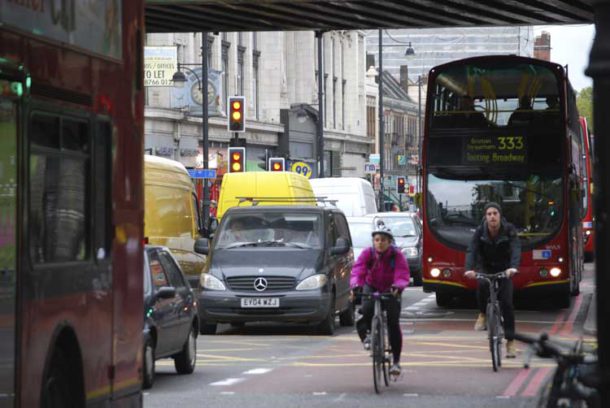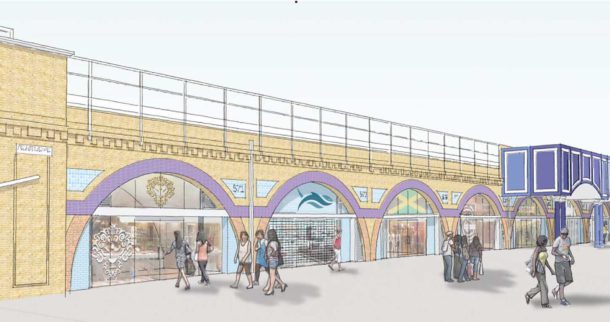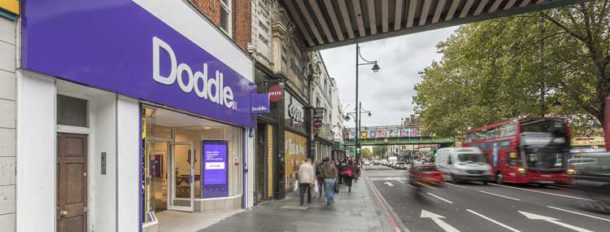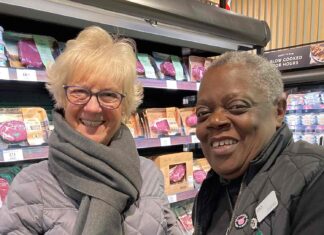
![]() Lambeth council is to use closed circuit television to monitor traffic on Brixton’s Atlantic Road, Electric Avenue and Pope’s Road in a study of ways to make deliveries to local businesses more efficient.
Lambeth council is to use closed circuit television to monitor traffic on Brixton’s Atlantic Road, Electric Avenue and Pope’s Road in a study of ways to make deliveries to local businesses more efficient.
It is also urging residents to cut down on home deliveries by using central collection locations.
The council said modelling of traffic suggested that vans and HGVs are responsible for about 20% of borough levels of the dangerous gas nitrogen dioxide.
It said Brixton was “dominated by vehicles” and has higher pollution levels than Oxford Street, making it “undesirable” for shoppers and hazardous for pedestrians and cyclists.
“The delivery of goods and services to local businesses and retailers can create additional traffic disruption and congestion through loading and unloading activities,” said the council.
“This also brings an increase in air pollution. As Brixton town centre develops, there is additional pressure to develop the resilience of the road network.”
The aim of the study is to find ways of making deliveries more efficient, possibly by different retailers placing orders together or using single drop-off points.

The council says that this could also save businesses money, improve the “public realm”, create an “attractive more sustainable area” for doing business and reduce congestion and air pollution.
The council said it would work with businesses and retailers to find out how their goods and services are delivered at present and in the future and what issues they expect to encounter.
Traffic surveys would give a better understanding of how loading and parking bays in the area are used and their occupancy rates.
After site visits and in discussion with key stakeholders, the council said, CCTV cameras have been located on Atlantic Road, Electric Avenue and Pope’s Road during September. They will be removed when the survey ends.
The council said it was reducing traffic in other areas of the borough with its low emission logistics initiative – a partnership with Southwark, Croydon and Wandsworth councils.
The project had identified a potential reduction in emissions of 40% by reducing the frequency of deliveries made to the administrative buildings in each authority.
Local businesses from each borough are being invited to contact the council so it can can help them to save money and make a greater improvement to air quality.”
The approach to Christmas means the number of vans on the road is expected to increase, adding to existing air pollution and congestion.
Home deliveries also created wasted journeys and failed delivery attempts.

“The rise in alternative collection locations such as Parcelly, Doddle, Click and Collect and Amazon/InPost locker banks provides an answer to this problem,” the council said.
“By using a collection location close to home, working Londoners can have the convenience of guaranteed deliveries without adding to the existing problems of congestion and poor air quality.
“We are asking Londoners to consider using these alternative locations to help us to reduce congestion and improve air quality.”














